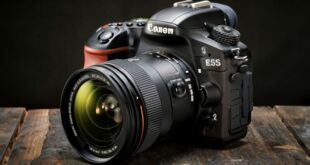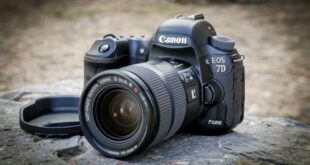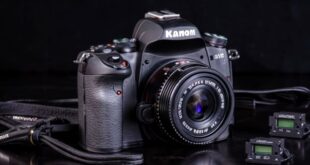Introduction
Hey guys, welcome to our in-depth comparison of Canon and Nikon DSLR cameras. If you’re passionate about photography, you’ve probably come across these two iconic brands. Canon and Nikon have been dominating the DSLR market for years, offering a wide range of cameras to cater to different needs and budgets.
In this article, we will explore the key features, advantages, and disadvantages of both Canon and Nikon DSLR cameras. Whether you’re a professional photographer looking to upgrade your gear or a beginner seeking your first DSLR, this comparison will help you make an informed decision. So, let’s dive in and compare Canon and Nikon cameras in detail!
1. Canon vs. Nikon: A Brief Overview
📷 Canon and Nikon have been fierce competitors in the DSLR market for decades. Both brands have a loyal customer base and offer a wide selection of cameras. However, there are some key differences between the two.
Canon is known for its user-friendly interface and intuitive controls. Their extensive lens lineup and excellent image quality make them a popular choice among photographers of all levels. On the other hand, Nikon cameras are renowned for their exceptional build quality and advanced autofocus system.
2. Key Factors to Consider before Choosing a Camera
📷 Before jumping into the detailed comparison, let’s take a look at the factors you should consider before buying a DSLR camera:
2.1 Sensor Size
The sensor size determines the image quality, low-light performance, and dynamic range of a camera. Both Canon and Nikon offer full-frame and APS-C (crop sensor) DSLRs. Full-frame sensors are larger, resulting in better image quality, but they come at a higher price point.
2.2 Megapixel Count
Megapixel count refers to the resolution of the camera. Although higher megapixels can capture more details, it doesn’t always mean better image quality. The optimal megapixel count depends on your photography needs.
2.3 Lens Selection
The availability and variety of lenses for a camera system are crucial. Canon and Nikon have an extensive range of lenses, including standard zooms, telephoto zooms, prime lenses, and specialty lenses. Consider the lenses you would need in the future and check the compatibility with the camera system.
2.4 Autofocus System
A fast and accurate autofocus system is essential, especially for sports and wildlife photography. Canon and Nikon both have advanced autofocus technology, but the number of autofocus points and tracking capabilities may vary across different models.
2.5 Video Capabilities
If you’re into videography, check the video features offered by the camera. Canon tends to excel in video capabilities, offering advanced features like 4K recording and Dual Pixel Autofocus.
2.6 Price
Price is a significant factor for most photographers. Determine your budget and find a camera that offers the best value for your money.
2.7 User Interface
The user interface should feel comfortable and intuitive to use. Consider the layout of buttons, accessibility of settings, and overall ergonomics of the camera.
3. Canon DSLR Cameras
📷 Canon offers a wide range of DSLR cameras, catering to photographers of all skill levels and budgets. Let’s take a closer look at some of the popular models:
3.1 Canon EOS 5D Mark IV
The Canon EOS 5D Mark IV is a flagship full-frame DSLR camera, loved by professionals worldwide. With its 30.4-megapixel sensor and advanced autofocus system, it delivers stunning image quality and exceptional low-light performance.
3.2 Canon EOS 80D
For the enthusiasts or those stepping into the world of DSLR, the Canon EOS 80D is a fantastic choice. It boasts a 24.2-megapixel APS-C sensor, impressive autofocus capabilities, and a versatile articulated touchscreen.
3.3 Canon EOS Rebel T7i
The Canon EOS Rebel T7i is an entry-level DSLR that doesn’t compromise on features. With its 24.2-megapixel sensor, fast autofocus, and beginner-friendly interface, it’s perfect for those starting their photography journey.
4. Nikon DSLR Cameras
📷 Nikon is renowned for its robust and reliable cameras, widely used by professionals around the world. Let’s explore some of the top Nikon DSLR models:
4.1 Nikon D850
The Nikon D850 is a full-frame powerhouse with a 45.7-megapixel sensor. It offers exceptional dynamic range, high-speed shooting, and 4K video capabilities. Whether you’re into landscapes, portraits, or wildlife photography, the D850 won’t disappoint.
4.2 Nikon D7500
The Nikon D7500 is a mid-range DSLR that strikes the perfect balance between performance and affordability. With its 20.9-megapixel sensor, 51-point autofocus system, and 4K video recording, it’s a versatile camera suitable for various genres of photography.
4.3 Nikon D3500
The Nikon D3500 is an entry-level DSLR that packs impressive features into a compact body. It offers a 24.2-megapixel sensor, easy-to-use controls, and excellent battery life, making it an ideal companion for beginners.
5. Canon vs. Nikon: Advantages and Disadvantages
📷 Now, let’s discuss the advantages and disadvantages of Canon and Nikon DSLR cameras in detail:
5.1 Canon Advantages
Advantage 1: Extensive Lens Selection
Canon has a vast range of lenses, including both Canon-branded lenses and third-party options. This provides photographers with flexibility and the ability to choose lenses that suit their specific needs.
5.2 Canon Disadvantages
Disadvantage 1: Limited Dynamic Range
Canon cameras, especially the APS-C models, have been criticized for having limited dynamic range compared to their Nikon counterparts. This can result in slightly less detail in shadows and highlights.
5.3 Nikon Advantages
Advantage 1: Excellent Build Quality
Nikon cameras are known for their durability and robust build quality. They can withstand harsh weather conditions and are often the go-to choice for outdoor photographers.
5.4 Nikon Disadvantages
Disadvantage 1: Smaller Lens Selection
Although Nikon has a wide range of lenses, they have fewer options compared to Canon. This might limit your choices, especially if you’re looking for unique or specialized lenses.
6. Canon vs. Nikon: Complete Comparison Table
| Camera Model | Canon | Nikon |
|---|---|---|
| Sensor Size | Full-frame and APS-C | Full-frame and APS-C |
| Megapixel Count | Varies | Varies |
| Lens Selection | Extensive | Wide, but fewer options |
| Autofocus System | Advanced | Advanced |
| Video Capabilities | Depends on model | Depends on model |
| Price Range | Varies | Varies |
7. Frequently Asked Questions (FAQ)
7.1 Which brand, Canon or Nikon, is better for beginners?
📷 Both Canon and Nikon offer great options for beginners. It depends on your personal preference and the specific features you prioritize. We recommend trying out both brands in-store and reading reviews to make an informed decision.
7.2 Are Canon lenses compatible with Nikon cameras?
No, Canon lenses are not compatible with Nikon cameras and vice versa. Each brand has its own lens mount, and the lenses are designed specifically for their respective camera systems.
7.3 Do Canon cameras perform better in low light than Nikon?
It varies depending on the camera model. Generally, Nikon cameras have been praised for their low-light performance, but Canon has made significant improvements in recent years, especially with their full-frame models.
7.4 Can I use third-party lenses with Canon and Nikon cameras?
Yes, both Canon and Nikon cameras support third-party lenses from manufacturers like Sigma, Tamron, and Tokina. However, it’s important to ensure compatibility and do thorough research before purchasing third-party lenses.
7.5 Is it worth investing in a full-frame DSLR?
📷 Full-frame DSLRs offer superior image quality, better low-light performance, and a wider field of view compared to APS-C cameras. If you’re a professional or serious enthusiast, investing in a full-frame DSLR can greatly enhance your photography experience.
7.6 Can I capture high-quality videos with Canon and Nikon DSLR cameras?
Yes, both Canon and Nikon DSLR cameras are capable of capturing high-quality videos. Canon is often praised for its video capabilities, offering features like 4K recording and Dual Pixel Autofocus. Nikon has also improved its video capabilities in recent models.
7.7 Which brand, Canon or Nikon, has better customer support?
Both Canon and Nikon have a strong customer support system. They offer warranty coverage, repair services, and online support resources. The quality of customer support may vary by region, so it’s worth checking local reviews and experiences.
8. Conclusion
📷 In conclusion, both Canon and Nikon cameras offer excellent options for photographers. Each brand has its strengths and weaknesses, and the right choice depends on your individual needs, preferences, and budget.
If you prioritize an extensive lens selection and user-friendly interface, Canon might be the better option for you. On the other hand, if robust build quality and advanced autofocus are your priorities, Nikon cameras won’t disappoint. Remember to consider factors like sensor size, megapixel count, lens availability, autofocus capabilities, video features, and price range before making your final decision.
Whichever brand you choose, both Canon and Nikon DSLR cameras can produce stunning images and help you unleash your creative potential. So, go ahead, explore the models, try them out, and capture amazing photographs with your new DSLR!
Disclaimer
This article is intended for informational purposes only. The views and opinions expressed in this article are solely those of the author and do not constitute any endorsement or recommendation by Canon or Nikon. Prices, specifications, and features mentioned in the article are subject to change. Please do thorough research and seek professional advice before making any purchasing decisions.


